Hazardous waste collection
Get a FAST & FREE quote for hazardous waste collection
Just enter your business postcode…
Get a FAST & FREE quote for hazardous waste collection
Just enter your business postcode…
Start saving now
Disposing of hazardous waste correctly is a legal duty for all UK businesses. We work with trusted providers to offer fast, fully compliant disposal services for all types of hazardous waste, including clinical, sanitary, electrical and more.

We can arrange hazardous waste disposal through fully licensed carriers wherever you’re located. Services are available across all UK regions, with flexible scheduling and tailored support for different waste streams and volumes.

We work with reliable, vetted providers who understand the needs of your sector. Whether you’re in hospital care, retail, or manufacturing, you’ll get a professional service that fits around your operations.

We support full legal compliance, including correct waste classification and documentation. You’ll receive all the required paperwork, such as consignment notes, to ensure everything is handled correctly.
Businesses across the UK regularly produce hazardous waste that must be disposed of legally and safely. Our commercial hazardous waste disposal service is designed to take the stress out of compliance, helping you stay focused on running your business. Here’s how to get started:

Enter your postcode above and tell us about your hazardous waste disposal needs, including how often you need collections.

Our experts will review the details and prepare a tailored quote based on your disposal requirements and location.

Once you’re happy with the quote, sign your hazardous waste management contract to activate your service and schedule your collections.
Different types of hazardous waste require different handling and disposal methods. We make it simple for businesses to access compliant disposal services for the most common hazardous waste types.
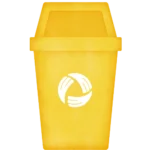
We offer fully licensed clinical waste disposal for hospitals, clinics, dental practices and care settings. This includes sharps, swabs, dressings and other infectious or offensive waste.
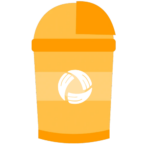
Our sanitary waste disposal service covers non-infectious waste such as nappies, hygiene products and washroom waste for workplaces, salons and care providers.
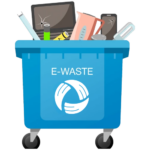
We arrange safe WEEE and electrical waste disposal for businesses with items like monitors, fridges, computers and other electronic equipment.
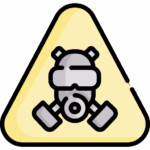
We provide asbestos disposal through licensed carriers, supporting both bonded and fibrous waste types with full legal documentation.

Our chemical waste disposal covers paints, solvents, cooking oils and other hazardous substances, ensuring safe handling and full compliance.
Disposing of hazardous waste properly is essential for legal compliance and workplace safety. From identification to collection, each step must be followed with care. Here are the key steps for compliant hazardous waste disposal:
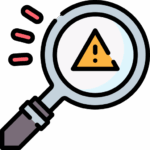
Recognising hazardous materials early makes disposal easier. This includes items like solvents, oils, sharps, or anything with a hazard label. Electronics and batteries are also hazardous, but are handled separately under WEEE regulations.

Hazardous waste must be kept separate from other waste types and never mixed. Trained personnel should use official guidance to categorise materials safely and avoid contamination and costly errors.
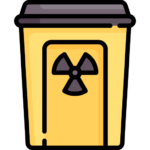
All hazardous waste must be stored in secure, labelled containers away from general waste. We provide advice and the right commercial waste bins as part of your service to ensure your site meets legal standards.

Consignment notes and waste records are required for every collection. We support you with accurate paperwork to ensure your business always remains compliant.

Waste compliance starts with people. We recommend regular training so staff can safely identify and handle hazardous materials. Most non-compliance issues come from small businesses that simply aren’t aware of their duty of care.
These are the hazard pictograms that are typically associated with hazardous materials. They come in a range of colours, typically red and white or orange and black.
💡 Some everyday products (e.g. cosmetics, medicines, AA batteries) are not normally labelled with hazard symbols, so you must always check the product data sheet.
Sources: UK Gov – Waste classification technical guidance; UK Gov – Hazardous waste classification
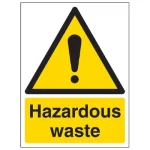
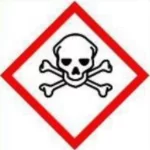
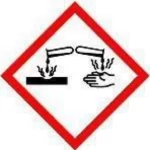
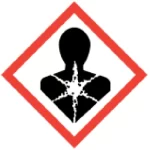
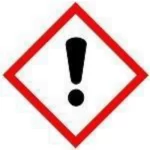
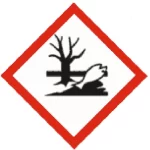
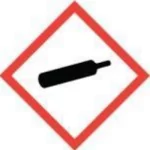
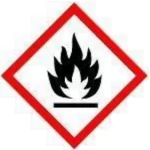
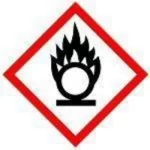
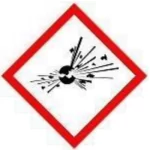
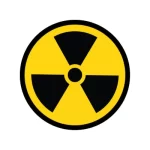
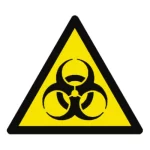
We provide compliant hazardous waste disposal services for businesses nationwide. Whether you’re managing waste from healthcare, manufacturing, education, or specialist services, we can arrange safe, reliable collections tailored to your location.
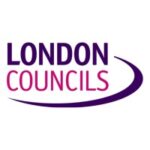
From dental clinics to laboratories, we support businesses across the capital with secure hazardous waste disposal. Our London commercial waste collection services include regular pickups and full documentation support.

We work with licensed providers to deliver professional hazardous waste services for businesses in Greater Manchester. Our Manchester commercial waste collection offering is ideal for healthcare, education and technical sectors.

Businesses in Birmingham can access fully compliant hazardous waste disposal, including support for clinical, sanitary and chemical waste. See our Birmingham commercial waste collection page for details.

We help clinics, schools and industrial premises in Leeds stay compliant with tailored hazardous waste management services. Learn more about our Leeds commercial waste collection services.

From dental waste to research facilities, we offer cost-effective hazardous waste services in Bristol. Visit our Bristol commercial waste collection page to arrange safe disposal.

Our Glasgow hazardous waste disposal services are designed for businesses across sectors, with expert support for proper segregation, storage and documentation. See our Glasgow commercial waste collection for more.
Our waste experts answer your commonly answered questions below:
Waste Electrical and Electronic Equipment (WEEE) may or may not be hazardous, so a waste item may fall into one or both categories.
For example, batteries will fall under both waste categories due to their hazardous content (like heavy metals and toxic chemicals), while keyboards, cables, wires and motherboards fall solely under WEEE.
Items that are both WEEE and hazardous waste must comply with both sets of overlapping regulations. This dual compliance ensures that all aspects of electronic waste – both its electronic nature and its potential hazardousness – are appropriately addressed.
Yes, Persistent Organic Pollutants (POPs) are considered hazardous waste due to their significant environmental and health risks.
In the UK, all businesses and organisations that produce, handle or receive hazardous waste must ensure it is safely managed in such a way that it causes no harm or damage.
It’s their duty of care and any business that is found non-compliant with regulations will be subject to hefty fines and in extreme cases, legal prosecution.
Essentially, you must not mix: